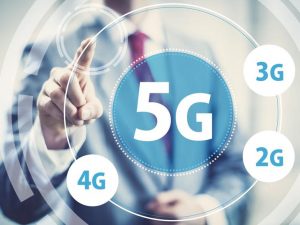- 7 percent of communications service providers worldwide have already deployed 5G infrastructure in their networks
- In 2020, CSPs will roll out stand-alone 5G technology, which will lower costs for them and improve performance for users.
- Equipment vendors view private networks for industrial users as a market segment with significant potential.

In 2020, worldwide 5G wireless network infrastructure revenue will reach $4.2 billion, an 89 percent increase from 2019 revenue of $2.2 billion, according to Gartner, Inc.
Additionally, Gartner forecasts that investments in 5G New Radio (NR) network infrastructure will account for 6 percent of the total wireless infrastructure revenue of communications service providers (CSPs) in 2019, and that this figure will reach 12 percent in 2020.
“5G wireless network infrastructure revenue will nearly double between 2019 and 2020,” said Sylvain Fabre, senior research director at Gartner.
“For 5G deployments in 2019, CSPs are using non-stand-alone technology. This enables them to introduce 5G services that run more quickly, as 5G New Radio (NR) equipment can be rolled out alongside existing 4G core network infrastructure,” he noted.
In 2020, CSPs will roll out stand-alone 5G technology, which will require 5G NR equipment and a 5G core network. This will lower costs for CSPs and improve performance for users.
Table 1: Wireless Infrastructure Revenue Forecast, Worldwide, 2018-2021 (Millions of Dollars)
| Segment | 2018 | 2019 | 2020 | 2021 |
| 5G
2G 3G LTE and 4G Small Cells Mobile Core |
612.9
1,503.1 5,578.4 20,454.7 4,785.6 4,599.0 |
2,211.4
697.5 3,694.0 19,322.4 5,378.4 4,621.0 |
4,176.0
406.5 2,464.3 18,278.2 5,858.1 4,787.3 |
6,805.6
285.2 1,558.0 16,352.7 6,473.1 5,009.5 |
| Total | 37,533.6 | 35,924.7 | 35,970.5 | 36,484.1 |
Source: Gartner (August 2019)
5G Rollout Will Accelerate Through 2020
5G services will launch in many major cities in 2019 and 2020. Services have already begun in the U.S., South Korea and some European countries, including Switzerland, Finland and the U.K. CSPs in Canada, France, Germany, Hong Kong, Spain, Sweden, Qatar and the United Arab Emirates have announced plans to accelerate 5G network building through 2020.
Gartner estimates that 7 percent of CSPs worldwide have already deployed 5G infrastructure in their networks.
CSPs Will Increasingly Aim 5G Services at Enterprises
Although consumers represent the main segment driving 5G development, CSPs will increasingly aim 5G services at enterprises. 5G networks are expected to expand the mobile ecosystem to cover new industries, such as the smart factory, autonomous transportation, remote healthcare, agriculture and retail sectors, as well as enable private networks for industrial users.
Equipment vendors view private networks for industrial users as a market segment with significant potential. “It’s still early days for the 5G private-network opportunity, but vendors, regulators and standards bodies have preparations in place,” said Fabre.
Germany has set aside the 3.7GHz band for private networks, and Japan is reserving the 4.5GHz and 28GHz for the same.
Ericsson aims to deliver solutions via CSPs in order to build private networks with high levels of reliability and performance and secure communications.
Nokia has developed a portfolio to enable large industrial organizations to invest directly in their own private networks.
However, national 5G coverage will not occur as quickly as with past generations of wireless infrastructure, Fabre stated.
He opined that in order to maintain average performance standards as 5G is built out, CSPs will need to undertake targeted strategic improvements to their 4G legacy layer, by upgrading 4G infrastructure around 5G areas of coverage.
“A less robust 4G legacy layer adjoining 5G cells could lead to real or perceived performance issues as users move from 5G to 4G/LTE Advanced Pro. This issue will be most pronounced from 2019 through 2021, a period when 5G coverage will be focused on hot spots and areas of high population density,” he added.










